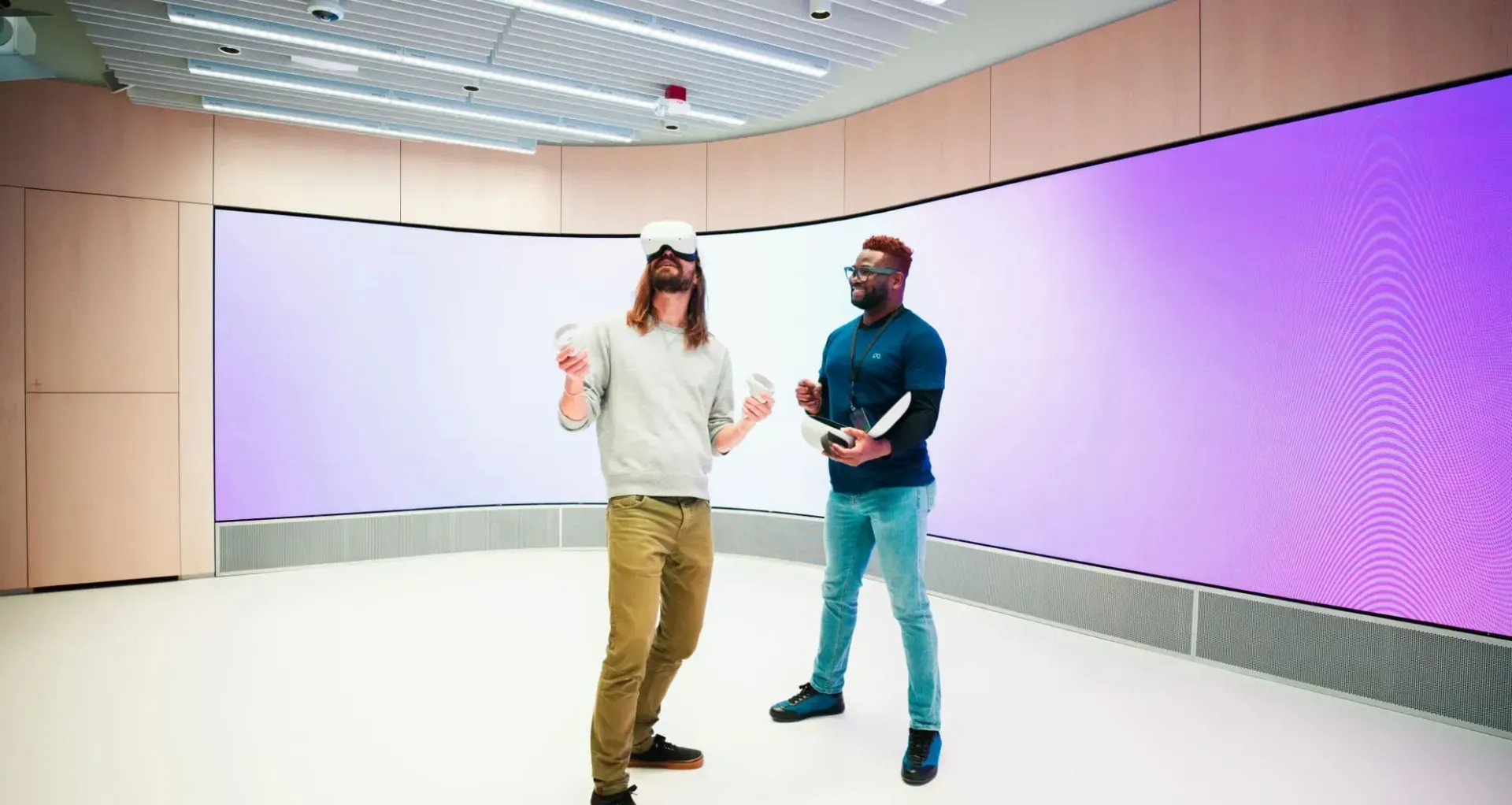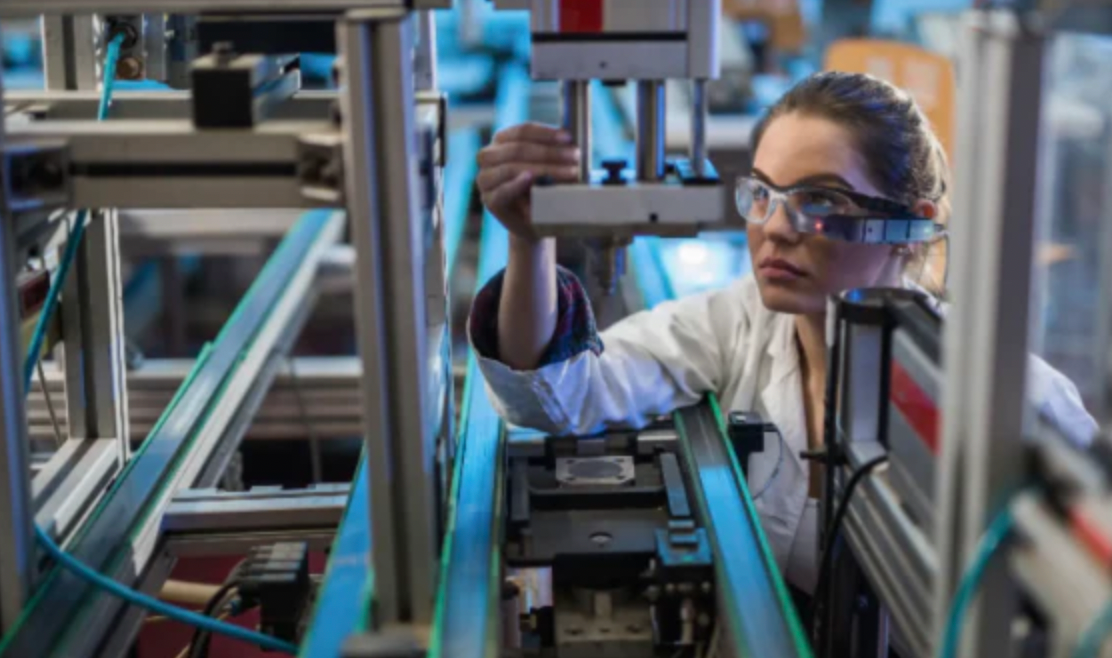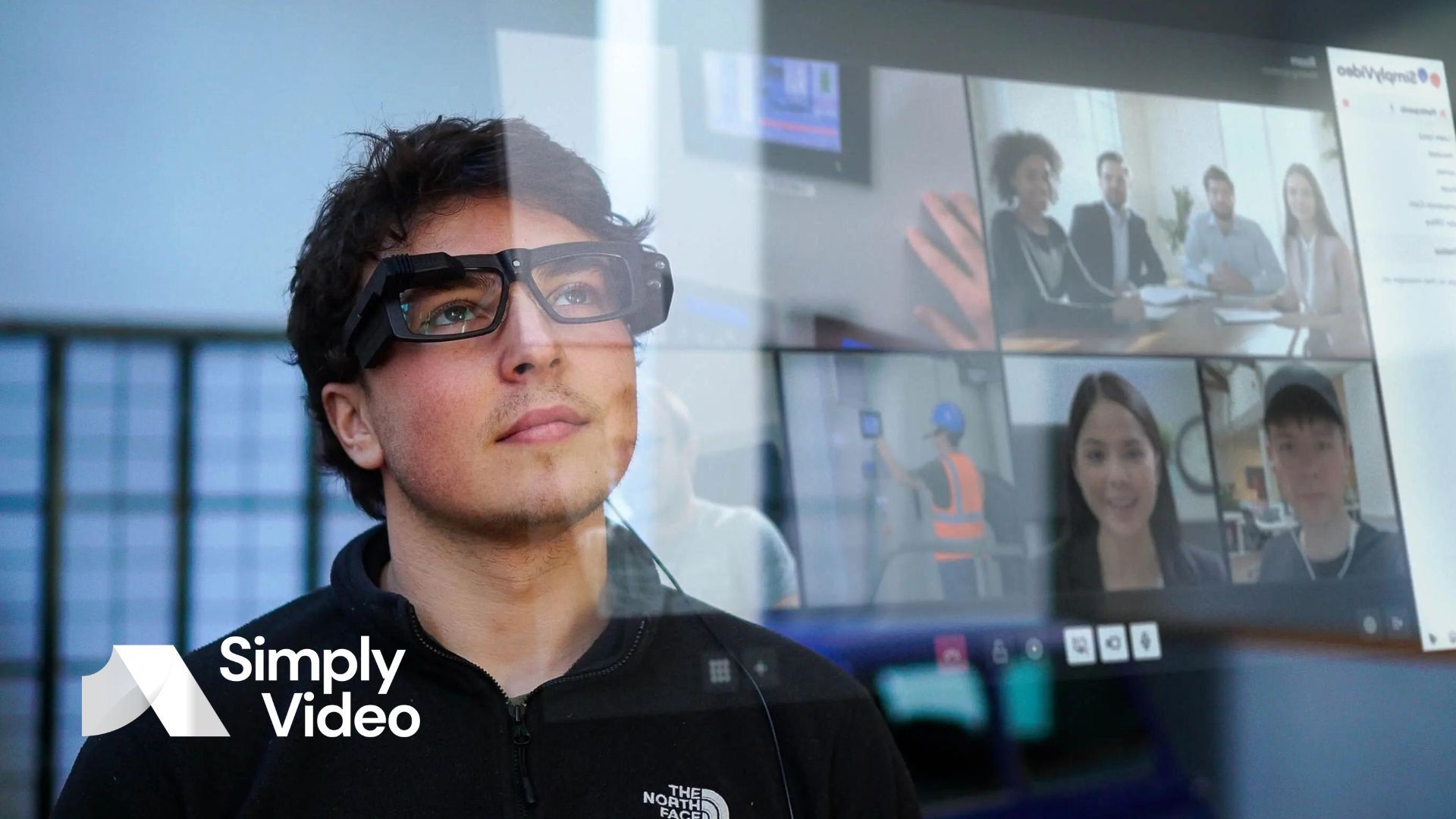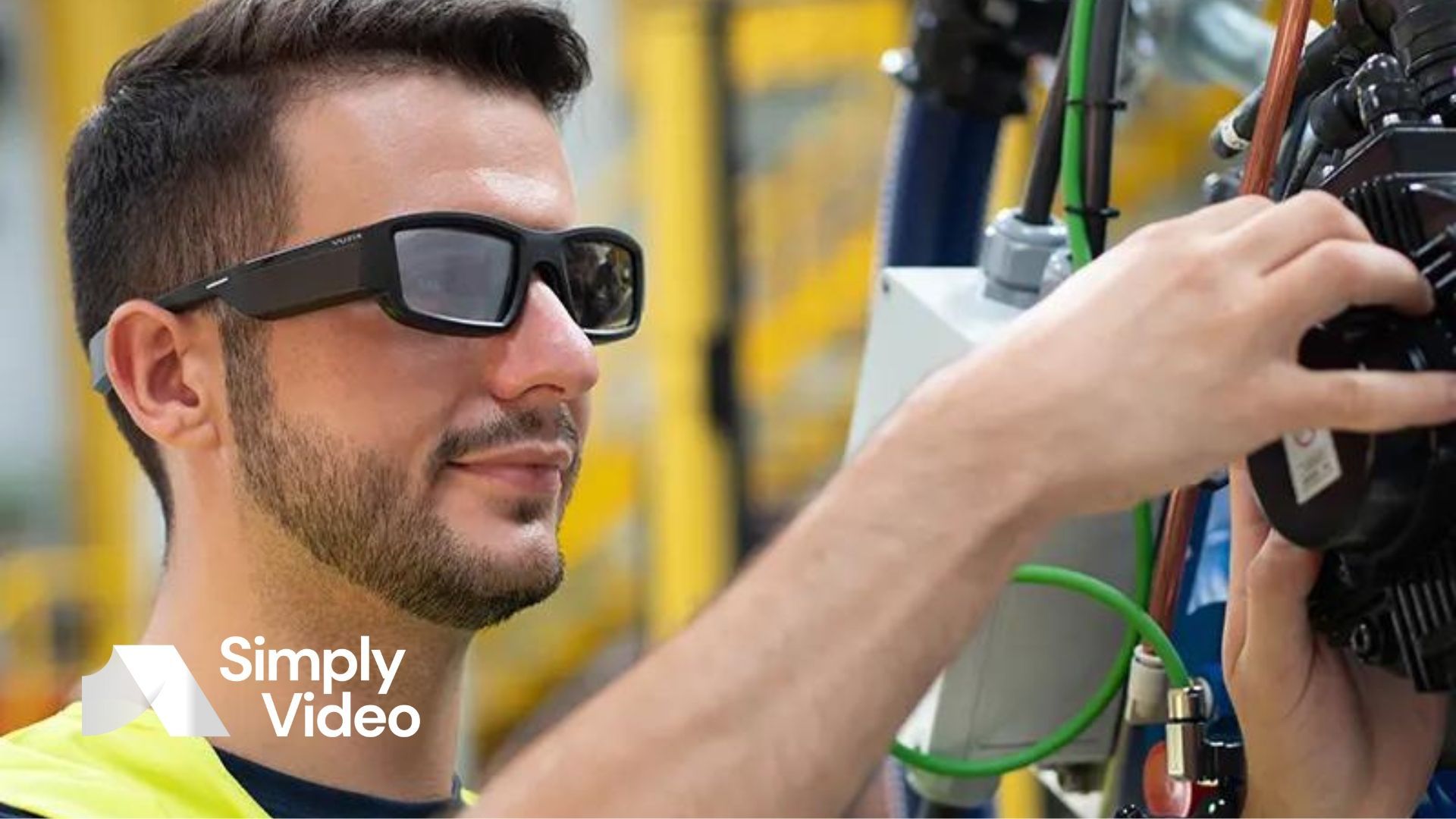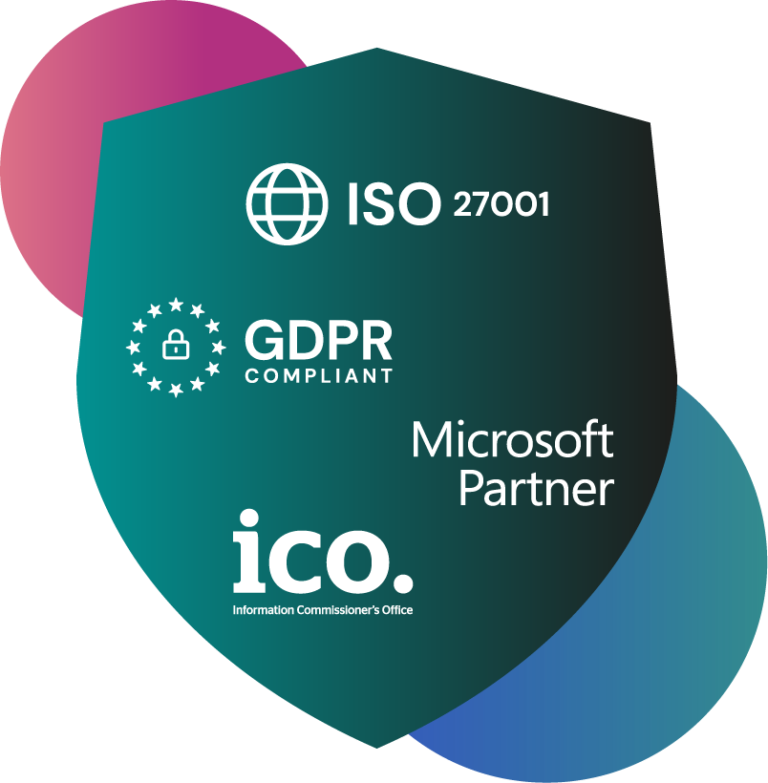What is OpenXR?
Whether you're an app developer or a customer looking to deploy XR headsets, software portability is a key issue. Find out how OpenXR can help.

The Magic Leap 2 is one of the most impressive XR headsets on the market. With its powerful optics, comfortable fit and wide field of vision, it's currently being used to deliver virtual training, remote assistance for frontline staff and 3D visualisation in a range of industries.
And now it
fully supports OpenXR. If you know what this means, you'll have at least some idea of why it's a positive move. But if not, let's take a look at OpenXR and what it means both for ML2 and the XR industry at large.
What is OpenXR?
Back in the mid-1980s, developers at Electronic Arts and Commodore had a bright idea – a universal file format that could be used to transfer data between pieces of software, no matter which company had developed it.
The vision was of a kind of digital skeleton key. Images, audio and text could roam freely, not bound to any one developer.
This Interchange File Format (IFF) never became a household name like JPEG or MP3. But it's still used to this day – and in the world of XR, the dream of interoperability isn't dead.
Today, the XR market is in a similar position to gaming in the eighties. We're witnessing a period of substantial growth and development – but devices and software don't always work together.
OpenXR is one solution to this. It provides an API (application programming interface) that seeks to simplify XR software development. The promise of OpenXR is that you can develop your app and then seamlessly deploy it on any compatible device.
And for the customer, you have access to a wider range of apps. You're not locked in to a vendor-specific app store.
OpenXR has been around since 2017 and is backed by a wide range of XR companies. Both device and software developers know that the field could be disrupted at any moment by a surprising innovation. They want to do what they can to ensure that their software won't need extensive rewriting.
Magic Leap 2 and OpenXR
Magic Leap has been part of the OpenXR Working Group for a long time – so why have they chosen to adopt OpenXR now?
The benefits would be the same whatever the timing – but Apple's movements in the XR space may have something to do with it.
Apple's much-rumoured mixed reality headset is
set to launch sometime in 2023. We don't know exactly what to expect, but a variety of leaks and scoops suggests something along the lines of Meta's VR headset.
But why should this spur Magic Leap to adopt OpenXR? Can't all these devices coexist in the XR landscape?
Well, yes and no. Apple is fiercely, notoriously proprietary. It creates its own ecosystem of apps such as iMessage and FaceTime and makes them inoperable through Android devices.
Essentially, Apple isn't keen on universal platforms or file types. The fear is that a chasm will open up between Apple and non-Apple apps.
If you're developing an XR app, you want to know where it can be deployed. As well as being proprietary, Apple is secretive about its research and development – so it's unclear yet whether Apple will accommodate existing apps or whether codes will have to be rewritten
It could be that we'll see the Apple/Android divide played out again in the XR world. If this happens, OpenXR is one safeguard for existing apps, as well as apps that are in development. And who knows? Apple itself might embrace it.
The benefits of OpenXR
OpenXR is like Esperanto – an international language that's been constructed to facilitate communication across borders. But unlike Esperanto, it's not dwarfed by a bigger international language (English). It creates opportunities for developers and customers alike.
For developers, its biggest selling point is that it creates "solution portability". Your new app isn't tied to one device – it can be ported across different platforms and optimised for each one. This gives it a head-start in the marketplace.
It also means that apps can be scaled for different devices to take advantage of their features. App developers can make software for the best devices in town – not just the ones that they're compatible with.
For instance, the Magic Leap 2 has a wide and tall field of vision. This makes it ideal for XR simulations based in a large building – something that could be of interest to app developers in real estate or construction.
Or take the ML2's "dynamic dimming". This enables you to dim parts of the virtual space to help you focus on particular 3D objects. Sun glare is no longer an issue.
Again, this is something that makes the Magic Leap 2 ideal for 3D visualisation – something that is being explored in healthcare among other industries.
Now that Magic Leap 2 is OpenXR-compatible, these features are available to almost any app developer.
So much for the developer – how about the customer?
Well, they get a healthy, thriving ecosystem of apps with more choice and more convenience. Whether a customer is deploying the Magic Leap 2 for remote assistance, immersive training or 3D visualisation, they have options. Lots of options.
You can see the full list of compatible apps
here. It ranges from job site visualisation to holographic meetings; from remote support for the factory floor to training for first responders.
Here at SimplyVideo, we're delighted that our
video collaboration software can be used with the ML2 among other devices. It can be deployed into self-hosted or private cloud environments and integrate seamlessly with Google Meet and Microsoft Teams.
Magic Leap 2 is going places. Its compatibility with OpenXR is another example of how it's leading the way in this new sector.
Are you looking for advanced remote collaboration tools? SimplyVideo can be used on a wide range of XR devices.
Sign up today for a free 30-day trial.
